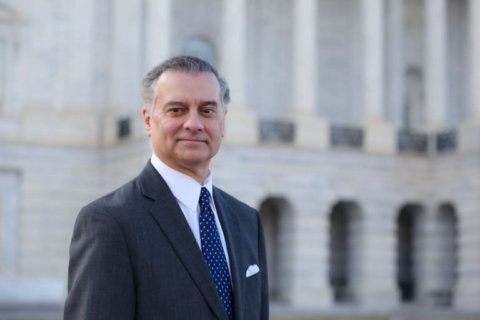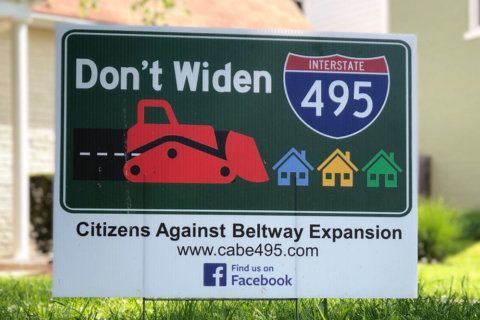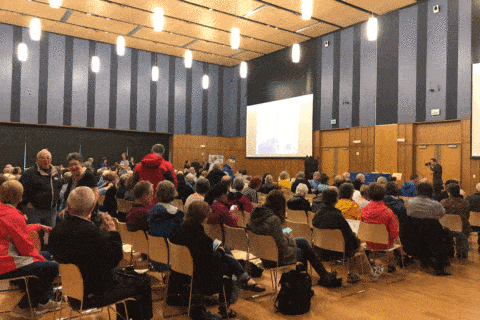Maryland Gov. Larry Hogan once again accused critics of his plan to widen the Capital Beltway of being “in favor of continued traffic congestion.”
Speaking before the group Maryland Business for Responsive Government, recently renamed Maryland Free, Hogan told attendees that watching the objections from state and local lawmakers was “like a bad movie sequel: ‘The Return of the Road Kill.’ It’s like the mother of all road kills!”
Maryland’s Board of Public Works will vote on the public-private partnership (P3) proposed by Hogan and the Maryland State Department of Transportation Wednesday morning. Hogan sits on that board, as do Treasurer Nancy Kopp and Comptroller Peter Franchot.
Kopp has expressed reservations about the plan; Franchot said that he is studying its merits.
A group of state and local lawmakers held a news conference Monday to call on the Board of Public Works to delay the vote, saying that the plan should include transit and that no vote should take place until the environmental impact study is completed. Hogan’s office issued a statement saying that the environmental study should be completed by fall 2020.
In his remarks Tuesday, Hogan harked back to his fight with lawmakers over legislation to require the state to rank state-funded road projects over $5 million, a bill he dubbed “the road kill bill.” Hogan said that lawmakers opposing his plan “seem to have forgotten that the people of Maryland are tired of inaction and tired of wasting their lives sitting in traffic.”
During a news conference Monday, Montgomery County Council member Tom Hucker outlined alternatives to the state’s version of the P3 project and said that local officials in Montgomery and Prince George’s counties had long supported congestion relief measures for both Interstate 270 and the Capital Beltway.
“These are not new ideas, most of them, but taken together, they are a more balanced, more taxpayer friendly, more environmentally friendly and more effective plan for traffic congestion relief,” Hucker said.
Hogan said his P3 plan is the largest of its kind in the world. “It literally will determine the quality of life for Marylanders for decades to come,” he said.
Hogan took the opportunity to remind Maryland Free of his pro-business credentials, as well, noting that he opposed the $15 minimum wage; and he mentioned legislation that commits Maryland to more mandated spending in the future.
The Republican governor said that the No. 1 problem facing Maryland is a “complete disconnect between the professional politicians in Annapolis and all the rest of us,” which he blamed on “out- of-touch, far-left politicians.”
And in anticipation of future fights over fiscal issues, Hogan said that it will be the “battle that will literally determine what kind of state our kids and our grandkids will inherit.”








